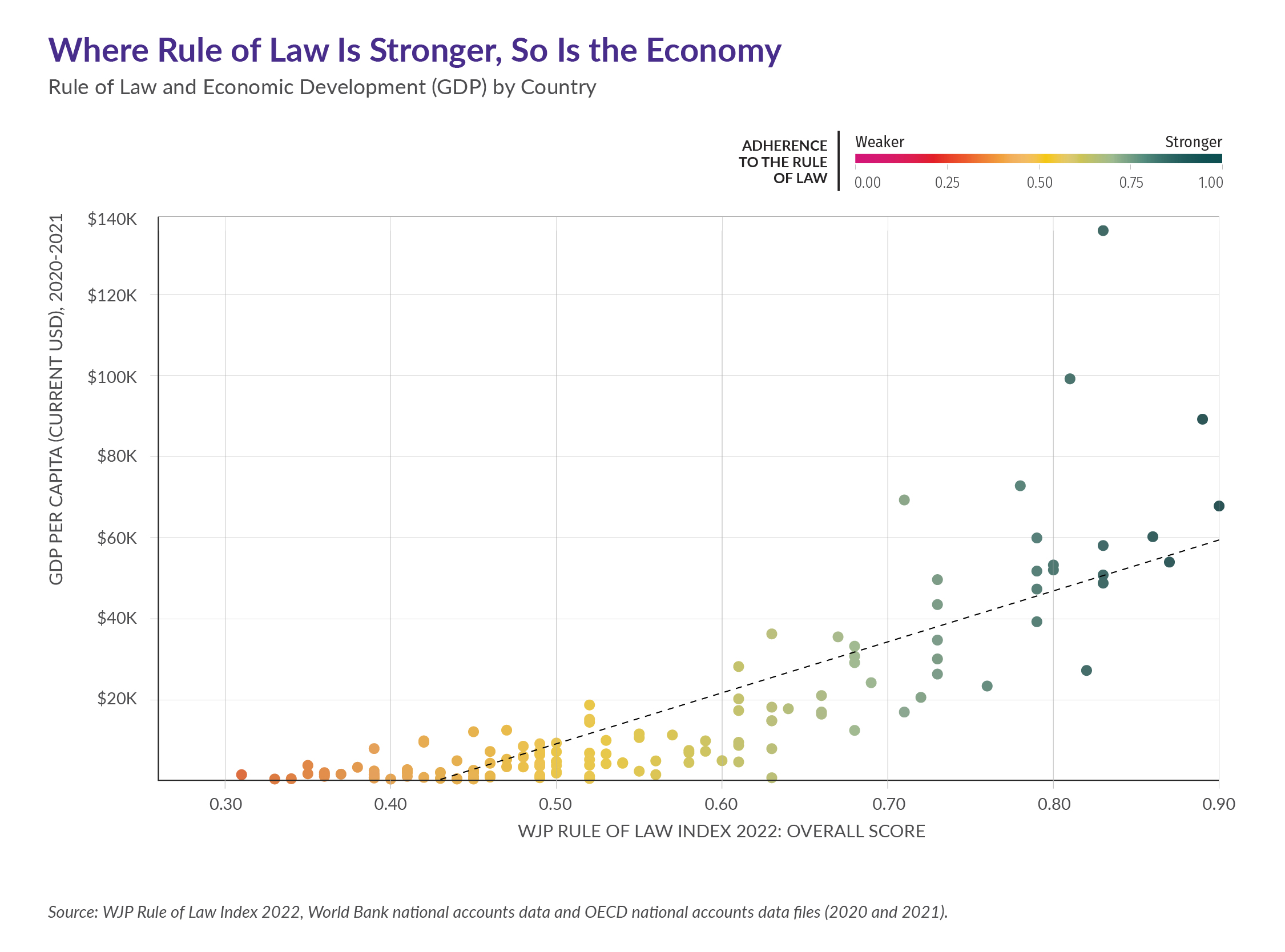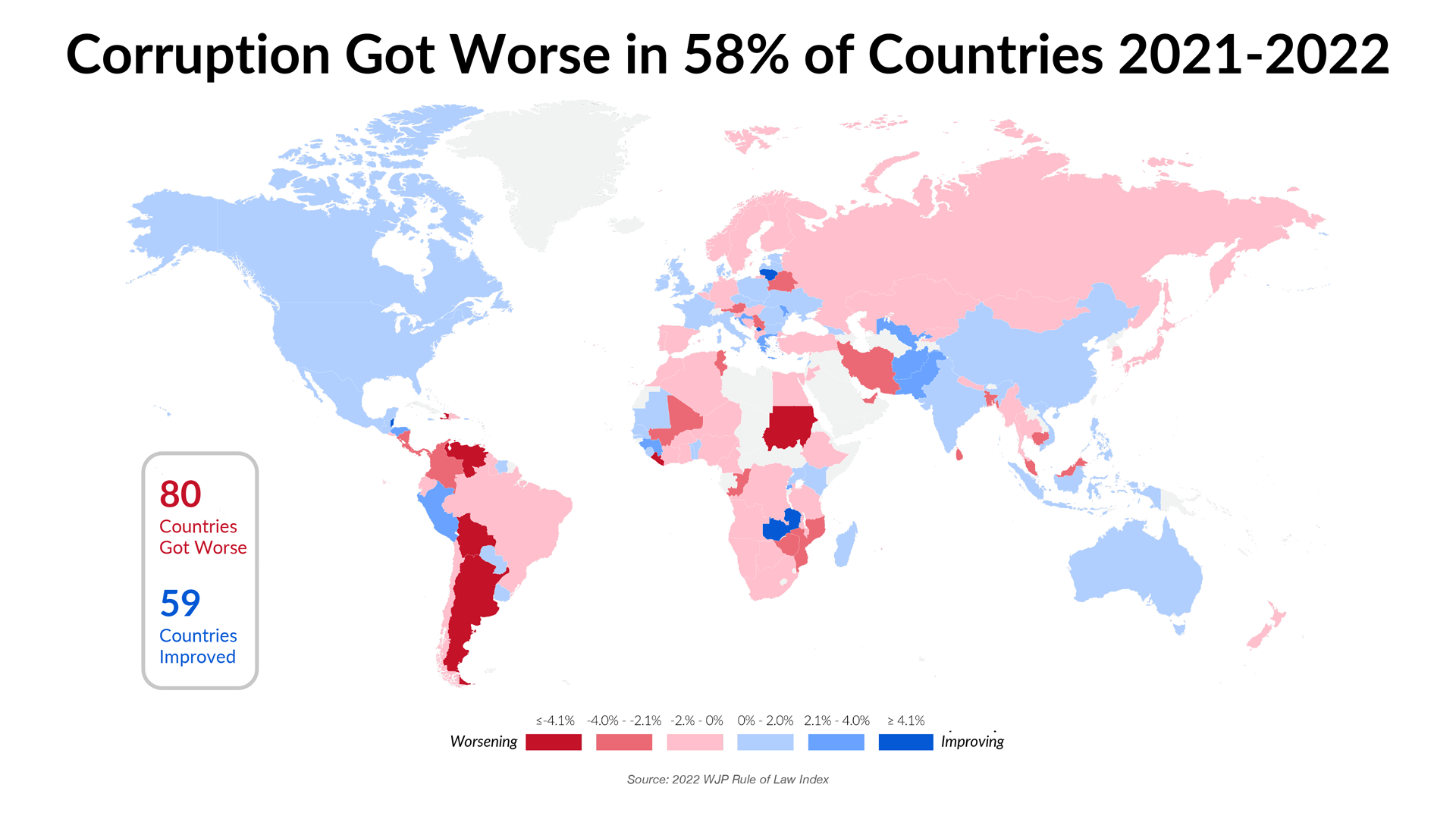

“Stick to your knitting.”
That’s what some companies are hearing as part of an “ESG backlash” that says they should stay out of social and environmental issues, according to Conference Board ESG Center Executive Director Paul Washington.
Luckily, when it comes to supporting the rule of law, companies can do more than argue it is good for the world, he said. They can demonstrate it’s good for their business.
“And that business case has to be made within a boardroom, and it has to be made in the public forum as well,” Washington told corporate leaders gathered for a recent private sector briefing on the WJP Rule of Law Index 2022.
“The WJP data helps us make that case.”
Indeed, that’s been the experience at LexisNexis, said Ian McDougall, the company’s executive vice president and general counsel. He told the gathering how his company uses Index data to show the strong correlation between rule of law and a variety of positive socioeconomic outcomes.
“For example, you see very clearly that the stronger the rule of law, the higher the per capita GDP is on average in a country,” he said, “and all kinds of other amazing things: lower mortality rates, lower corruption rates.”

“This is not just us telling you, we think this is a great idea,” McDougall said. “This is us telling you that the evidence shows that you benefit as a result of supporting an advance in the rule of law.”
At the same briefing for WJP’s private sector partners and other corporate leaders, WJP Chief Research Officer Alejandro Ponce dug into the 2022 Index data, including the indicators most relevant to the business environment.
Between 2021 and 2022, regulatory enforcement weakened in 58% of countries, he said, while the effectiveness and timeliness of civil justice systems declined in 61% of countries. Corruption also got worse in 58% of countries, Ponce said, but noted that this indicator has remained relatively stagnant because the changes were often very small.

Participants in the briefing agreed that monitoring rule of law is critical for a variety of business reasons, and that using Index to help manage risk can and has saved companies as much as billions of dollars when deciding where to invest or grow their business.
“As a business going into any environment, we want to determine some kind of predictability,” said Joseph Kilian Bongsiysi Fonlon, associate general counsel of Hewlett Packard Enterprise. “You want to be able to understand what the regulatory framework is.”
Bongsiysi Fonlon encouraged other businesses and partners to participate in generating more rule of law data.
“Long term we will have a robust database we all can rely on,” he said. “And that will make our ability to invest around the world more predictable [and help us] manage economic risk, as well as achieve our core missions.”






